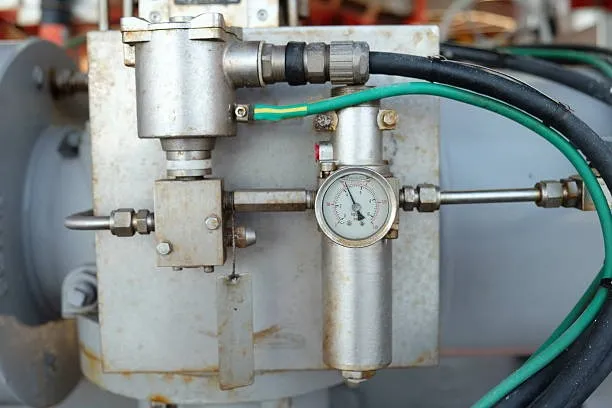
Boiler Tune-Up in Neffsville, PA
A professional boiler tune-up in Neffsville, PA keeps your home warm, safe, and efficient through Lancaster County winters. With cold snaps, older housing stock, and a mix of gas, oil, and hydronic systems in the area, routine tune-ups address wear from seasonal cycling, hard water scale, and flue corrosion before small problems become costly breakdowns.
Why a boiler tune-up matters in Neffsville
- Neffsville winters are cold and demand long run times from boilers. Extended use makes burners, controls, and heat exchangers more prone to dirt, soot, and combustion inefficiency.
- Many local homes have older cast-iron or hydronic systems where scale, rust, and pressure issues are common. Hard water in Lancaster County can accelerate scale buildup in boilers and radiators.
- A seasonal tune-up improves safety by checking combustion and venting, and it helps preserve comfort during extended cold periods when a breakdown is most disruptive.
Common boiler problems in Neffsville homes
- Poor combustion or yellow flame indicating improper air/fuel mix
- Soot or carbon buildup on burners and heat exchangers reducing efficiency
- Faulty controls, thermostats, or aquastats causing short-cycling or uneven heat
- Low system pressure, leaks, or trapped air in hydronic loops
- Flue blockage or corrosion leading to improper venting and safety concerns
- Scale and sediment in boilers or radiators that lower heat transfer and increase fuel use
Typical boiler tune-up checklist
A professional boiler tune-up follows a systematic checklist to maximize performance and safety:
- Visual inspection of boiler, burner, controls, and piping for leaks, corrosion, or damage
- Combustion analysis to measure efficiency and carbon monoxide levels
- Burner adjustments and cleaning to restore proper flame pattern and fuel delivery
- Heat exchanger inspection and cleaning to remove soot or scale
- Flue and vent inspection to confirm safe, unobstructed exhaust
- Control calibration and safety device testing, including pressure and temperature limits
- Circulator pump check, valve lubrication, and expansion tank inspection for hydronic systems
- System flushing or targeted cleaning recommendations if sediment or scale is present
- Record of current operating pressures, temperatures, and fuel usage for comparison at future visits
Diagnostic process: what to expect during a tune-up
Technicians begin with a walkaround inspection, then put the system into a controlled run to observe start-up, flame quality, and cycling behavior. A portable combustion analyzer gives immediate readings for oxygen, carbon dioxide, carbon monoxide, and combustion efficiency. From these measurements, burner adjustments are made and components like electrodes, igniters, and nozzles are cleaned or inspected. Controls and safety switches are tested for proper response. For hydronic boilers, the technician will also check pressure, purge air from the zones, and verify proper pump operation. Everything is documented so you have a clear baseline and future comparisons.
Expected performance improvements
After a complete tune-up Neffsville homeowners typically see:
- Improved heating responsiveness and more even home temperatures
- Better fuel efficiency and reduced fuel consumption compared to pre-tune operation
- Cleaner combustion with lower risk of soot buildup and lower CO output
- Quieter operation and fewer short cycling episodes
- Extended equipment life through reduced wear on moving parts and controls
- Lower likelihood of mid-winter breakdowns due to proactive detection of weak components
Service duration and cost factors
- Typical duration: most thorough residential boiler tune-ups take about 60 to 90 minutes, depending on system complexity, accessibility, and whether additional cleaning or minor repairs are needed.
- Cost factors: pricing varies by boiler type (gas, oil, steam, hot water), system age, accessibility, and whether combustion testing or parts replacement is required. Older systems or those with heavy soot and scale may need longer service or additional corrective work.
- Instead of a flat number, expect the tune-up to be scaled to the work involved. A properly performed tune-up is an investment that often pays for itself through improved efficiency and fewer emergency repairs.
Frequency recommendations
- Annual tune-up before the heating season: For most gas and oil-fired boilers, one professional tune-up each year—preferably in early autumn—prepares the system for continuous winter use.
- Steam boilers: Require closer attention; annual inspections plus interim checks are common for older steam systems.
- High-use or older systems: Consider semi-annual visits or enrollment in a maintenance plan if your home relies heavily on the boiler or the system is over 10 to 15 years old.
- Hydronic systems with hard water or frequent sediment issues: More frequent checks help prevent scale buildup and maintain pump health.
How tune-ups reduce breakdown risk
- Early detection: Tune-ups reveal worn electrodes, cracked heat exchangers, degraded seals, and failing controls before they cause a complete failure.
- Preventive cleaning: Removing soot, scale, and debris restores efficient heat transfer and lowers strain on the burner and circulator.
- Safety verification: Combustion analysis and venting inspections reduce the risk of dangerous carbon monoxide accumulation and venting failures.
- Baseline documentation: Regular service records make it easier to identify gradual performance decline and plan replacements on a schedule that minimizes disruption.
Long-term benefits and maintenance tips
- Consistent tune-ups extend the useful life of your boiler and help maintain resale value for older Neffsville homes.
- Simple homeowner tasks between professional visits: keep the boiler area clear, monitor system pressure, and report unusual noises or odors promptly.
- For hydronic systems: bleeding radiators, checking expansion tanks, and watching for pressure drops can prevent common circulation issues.
- Combining tune-ups with filter checks, thermostat upgrades, or zone control balancing can amplify energy savings and comfort.
A professional boiler tune-up in Neffsville, PA is a practical, safety-focused investment that keeps heating systems running efficiently during the long heating season. Regular maintenance reduces emergency repairs, improves comfort, and helps manage fuel costs while protecting your home and family.


Enjoy flexible financing options that make upgrading or repairing your HVAC system easy and budget-friendly.










